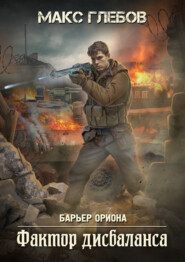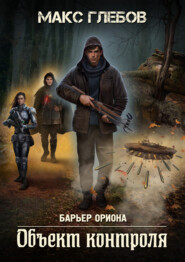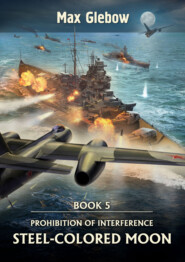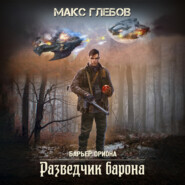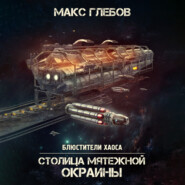По всем вопросам обращайтесь на: info@litportal.ru
(©) 2003-2024.
✖
Vengeance Weapon
Настройки чтения
Размер шрифта
Высота строк
Поля
“Do you have any idea who you’re talking to, Colonel?” Las could hardly contain his emotions, looking at the image of the tired and frenzied officer in the uniform of the military transport service, “I’m the head of the Ministry of Defense Security Department! And you claim you can’t find a slot in the transfer schedule for my ships?!”
“I can, General,” answered the Colonel with utter hopelessness in his voice, “but not before 12 hours. I have shipments with «super urgent» status waiting in line for hours. And this includes stasis pods with women and children with complex injuries that can no longer be helped here. People die every minute on these transports without any help. What can I do? Make them wait any longer?”
Las gritted his teeth. He did not know how to explain to the Colonel, who was certainly right in his own way, that by rescuing the inhabitants of Kappa Giyan, he was jeopardizing the operation on the outcome of which the lives of billions of the Empire’s inhabitants might depend.
“All right, Colonel,” the General finally made up his mind, “There’s no need to change the schedule. Put my squadron in line to jump in 12 hours, all but one ship. My medium recon ship will fit in the hold of the evacuation transport going into the system. Give me the coordinates of the portal where they jump to you, and alert the commander of the next ship in line that he’s going to Kappa Giyan with the cargo.”
Las was taking a risk. He was well aware that his escort would not be able to join him for at least 15 hours. Anything could have happened in that time, from an invasion of the toads in the system to the appearance of heavily armed rivals from the Imperial security service. In either case, having warships behind him wouldn’t hurt the General, to say the least, but Las saw no other options.
* * *
The star whose planetary system we chose as the first test object of attack, or rather, reconnaissance-in-force, did not have its own name in the Federation catalog. It was a classic yellow dwarf, which received an unofficial name ‘Star G’ from one of the analysts, whether by the first letter G in the name of its spectral class, or maybe by the first letter in some other word, the author did not specify.
The beginning of the operation followed a pattern that we had already worked out many times. The escorted mobile transport ring segments arrived in the vicinity of the attacked system and docked. This time, given the scant information about the enemy, I decided to take precautions and chose a point to set up the portal two linear jumps away from the star.
15 Black Dragons, a hundred «Invisibles», 24 huge quarg aircraft carriers, and a light force of two dozen destroyers and an entire squadron of recon ships under the command of Rear Admiral Yoon Gao came through the hypergate and fell into a marching formation, preparing to accelerate to make two successive jumps to the system’s borders. This time I did not plan for long combat operations and capture of planets, so the supply transports and landing ships have remained on the bases.
We came out of the jump in the outer asteroid belt. The system met us with a complete lack of any reaction to the appearance of an impressive enemy fleet on its outskirts. And it was despite the fact that a few days ago our reconnaissance probes could not even get close to its borders. There was only one conclusion: they were waiting for us. It was unpleasant to realize this fact, but at least it became clear that we were not wrong about one thing: the toads did not have enough warships to directly confront our squadron in open space.
“Commander, Sir, the system is saturated with industrial and mining infrastructure,” the senior analyst reported looking at his screen, “but there is no transport fleet activity typical of such systems. There is a high probability that the enemy detected us at a distance of one jump from the system and had time to evacuate the shipyards and factories. It is also possible that we were discovered even earlier, but this means that the toads know the coordinates of the transport ring.”
“Pass the order to Commander Somov to undock the portal and jump immediately,” ordered I, knowing that we could not afford to lose the opportunity to quickly return to the Federation space. The transport ring, of course, still had its guard ships, but I didn’t want to take any chances anyway.
The tactical projection was gradually replenished with scan data, but compared to the usual picture seen when entering an enemy star system, the degree of detail of the picture left a lot to be desired. Our scanners were clearly countered by something very powerful, far superior to our scanning and electronic warfare systems.
“Rear Admiral Yoon Gao, what measures have been taken to scout enemy defense systems?”
“Unmanned probes have been sent to the three central planets, Commander, Sir. They are escorted at some distance by five medium recon ships and three Ghost-class destroyers, so the toads don’t try to shoot the probes down with some little thing like patrol corvettes. With their help, they used to prevent us from even approaching the boundaries of the system.”
“The Ghosts don’t have enough firepower, Rear Admiral. Even an attack by two or three enemy corvettes could be a problem for them.”
“There’s no counteraction so far, Fleet Admiral, Sir," objected Yoon Gao, "and sending Black Dragons to cover the probes…”
“I agree," I nodded, "it’s a completely unnecessary risk.”
Meanwhile, the picture was beginning to become clearer. As the distance to the enemy decreased, the probe scanners began transmitting more and more detailed information to the squadron ships.
“How many of them are there…” said Admiral Fulton in amazement as the tactical projection displayed the largest sites of the orbital defense of the fourth planet.
I understood the Admiral well. This was really the first time we saw anything like this. Even Earth was protected by only 15 orbital fortresses, and it was thought that this number was even excessive. There was something unimaginable going on here. A dense network of hundreds of large marks surrounded the planet in a sphere. It was not yet possible to examine these sites in detail, but their size unambiguously indicated that they were not analogues of relatively weak rocket and artillery monitors, with which we dealt at Luyten-5, but full-fledged orbital fortresses.
“Rear Admiral, continue reconnaissance of the fourth planet’s defense system, and assign several groups to search for a hyperportal,” I ordered Yoon Gao, “According to the prisoners’ statements, it should be in this system, and somewhere near the boundaries of the star’s zone of influence, but so far our scanners don’t see it.”
“Doin’ it,” Yoon nodded and disappeared from the channel, switching to giving orders to his subordinates.
I did not like what I saw. I had no doubt that my squadron was no match against the network of orbital fortresses of the toads, but to turn around and fly away would be unforgivably stupid. In order to come back here later for a real assault, we needed to understand what the enemy’s defenses were capable of. Based on what we saw in the battle of the Delta Trianguli, the range of our drone torpedoes was longer than that of the toads’ guns, but we’ve never dealt with their orbital fortresses before, so I couldn’t say anything with certainty.
The destroyers accompanying the reconnaissance probes approached the orbital fortresses within torpedo launching distance. They had no torpedo weapons on board, but the enemy could not know that, and I hoped that if the toads had something more long-range than the main batteries of their battleships, they would use it. However, our provocation was not successful, the fortresses remained silent.
“«Invisibles» One through 30, prepare to accelerate towards the fourth planet. Commander Klitch,” I addressed to the squadron commander of the quargs, who had miraculously survived in the melted wreckage of his flagship at the Battle of Delta Trianguli, “Assign five of your aircraft carriers to join up with the «Invisibles».”
“Doin’ it.”
“Seven destroyers from the first division and battleship Denver, escort the drone torpedo carriers to the attack line and cover their retreat after the salvo. The squadron’s task is a torpedo strike on three enemy orbital fortresses – the 75th through the 77th.”
The fleet split up. The main force remained behind the orbit of the sixth planet, without entering the star’s zone of influence, and one Black Dragon and seven destroyers began approaching the toads’ planet, escorting the ‘Invisibles’ and aircraft carriers. The enemy was bound to react to such a threat, of that I had no doubt.
We have never been able to see in detail what the orbital fortresses of the toads are. Even at maximum proximity to them, probe scanners gave only a fuzzy, blurry picture. But at least we could see the fortresses, and the surface of the planet was not scanned in any way.
“The fortresses combine their camouflage fields into a common veil through which our scanners are unable to penetrate,” reported Yoon Gao, “I’m afraid that when it comes to the assault, the force fields will also form a single spherical shield over the planet.”
“If things are so bad, then why did some captive toads agree to work for us in exchange for promises of high positions in the occupation administration after our victory? So they don’t really believe in the indestructibility of this defense,” answered Fulton with a doubt in his voice, scrutinizing the image on the screen.
“We’ll know everything soon enough, Officers, Sirs,” I replied as I watched the «Invisibles» and aircraft carriers approach the torpedo launching line, “If the toads are able to surprise us with something, it will happen now.”
A wave of ripples went through the image on the projection screen. For a fraction of a second it blurred and then became clear again. The eight orbital fortresses closest to the ships approaching the opening fire line were enveloped in purple protuberances, and after ten seconds a blob of energy resembling a small but brightly flaring artificial sun formed above each of them. The envelopes of the just-born luminaries, reaching an unbearable brightness, burst and fell in themselves, collapsing into dots, and from these points to the seven destroyers and the Black Dragon rushed lightnings of absolute darkness, slightly illuminated in some places by a dark gray, making them distinguishable against the blackness of space.
The destroyers disappeared in bright flashes. No debris, no internal explosions, nothing. Just a spherical wave of scattering photons. Denver was a little luckier, although I couldn’t really call it luck. The battleship’s protective field flared up and instantly went out. It was able to absorb some of the energy of the enemy salvo, but not all of it. The volley of toads could not completely destroy this Black Dragon-class battleship, but what was left of it could no longer be called a warship. A pathetic melted fragment barely a quarter of its original size remained of the once formidable fighting machine.
“Break off the attack! «Invisibles» and aircraft carriers, withdraw immediately from the battle!”
My order was too late. The drone torpedo carriers had already fired a salvo and were now laying down on a course to diverge from the planet, and nearly nine thousand torpedoes were rushing toward the enemy orbital fortresses, which had just destroyed eight of our ships, including the newest battleship, whose superiority over the enemy we had all pinned such hopes on, with the first shot.
The enemy managed to fire 13 more times, and now other orbital fortresses were firing. Apparently, it took a long time to recharge that unknown weapon. We lost two quarg aircraft carriers and 11 «Invisibles», and the rest of the ships managed to escape. And then a wave of our torpedoes hit three orbital fortresses.
Yoon Gao’s fears were not in vain. The network of fortresses really formed a single wall of energy protection. Perhaps if the torpedoes had been equipped with old-style warheads, few would have reached their targets. But now the torpedo was not required to make direct contact with the target. The disposable plasma cannon sent its charge to the target from a very respectable distance, so that anti-aircraft guns and short-range missiles largely lost their effectiveness against torpedoes, which simply did not approach the target at a dangerous distance.
For 15 seconds, the shield that covered the orbital fortresses was ablaze with continuous bursts of plasma blasts, and when the last flashes of fire went out, it was clear that the enemy defense was not absolute after all. Two of the three fortresses we attacked survived. At any rate, their markings remained in place, and we could not assess the damage the enemy had received as the camouflage fields were in the way. But the third fortress was gone. Its shapeless wreckage and fragments of armor and internal structures were pulled out of orbit and partly scattered in the surrounding space, and some fell to the planet, trapped by its gravity.
It was in grim silence that we watched the outcome of the battle. The exchange of a Black Dragon and two dozen other ships for one enemy orbital fortress looked depressing. We could console ourselves with the fact that we were cautious enough not to try to approach the planet with the whole fleet.
“The second search team found the enemy transport ring,” Yoon Gao reported over the hypercomms, and a new marker flashed on the tactical projection.
The toads had positioned a hypergate in the asteroid belt beyond the orbit of the seventh planet. They had not evacuated the portal personnel and seemed seriously intent on protecting such a valuable facility, now that the enemy had discovered it.
But here the situation turned out to be quite different. The hyperportal of toads was guarded in an unprecedented way for a autonomous space structure. Ten asteroids, put into circular orbits, orbited slowly around it. The enemy had turned them into a kind of orbital fortress, and I feared that it was not modern «frogs» who did this, but their distant ancestors back when the portal was built, so we could expect about the same kind of nastiness from these defenses that we already had the dubious pleasure of encountering near the fourth planet. And besides, three cruisers covered the hypergate, though, judging by some of the details of their construction, they were modern ships, far inferior to those built by the toads’ ancestors.
“The asteroids are close enough to each other, most likely, the protective field will be unified here, too,” Admiral Fulton suggested, “but, by all appearances, our fleet is quite capable of overcoming this defense.”
I agreed with the Chief of Staff in his assessment of the situation, but we were all getting very tired of losses. This endless war has taken the lives of the best, the most energetic and dedicated people and our allies, and lately I have seen it as my primary goal to stop this massacre. Yes, wars are not won without casualties, but the main question is what the commander sees as his main goal – a victory or saving the lives of his soldiers. Almost always this choice results in a compromise, but each time the compromise is left to the conscience of the commander ordering the attack.
“Commander Klitch,” I called the commander of the remaining aircraft carriers, “Are your ships capable to move automatically to the torpedo launching range, fire a salvo, and then proceed to a predetermined rendezvous point?”
“Yes, Commander, Sir, we can program our computers to perform such a task,” replied the quarg with a doubt in his voice, “but in this case the ships will not be able to react to changes in the combat situation and will carry out the order regardless of the actions of the enemy. It is impossible to control them remotely, this was done on purpose to prevent the enemy Electronic Warfare systems from intercepting the control in combat.”
“Commander Klitch, in the next five minutes you will receive the attack vector, as well as the coordinates of the torpedo launching point and the assembly point. Leave two aircraft carriers in reserve and order the crews of the others to prepare to evacuate to your ships that participated in the previous attack. They don’t have any torpedoes left anyway, so they’ll work as transports.”
“Yes, Admiral, Sir,” the quarg did not object or ask any clarifying questions. Apparently, the tradition of unquestioning obedience to a commander was deeply ingrained in his society. But I didn’t abuse it and explained my order.
“I can, General,” answered the Colonel with utter hopelessness in his voice, “but not before 12 hours. I have shipments with «super urgent» status waiting in line for hours. And this includes stasis pods with women and children with complex injuries that can no longer be helped here. People die every minute on these transports without any help. What can I do? Make them wait any longer?”
Las gritted his teeth. He did not know how to explain to the Colonel, who was certainly right in his own way, that by rescuing the inhabitants of Kappa Giyan, he was jeopardizing the operation on the outcome of which the lives of billions of the Empire’s inhabitants might depend.
“All right, Colonel,” the General finally made up his mind, “There’s no need to change the schedule. Put my squadron in line to jump in 12 hours, all but one ship. My medium recon ship will fit in the hold of the evacuation transport going into the system. Give me the coordinates of the portal where they jump to you, and alert the commander of the next ship in line that he’s going to Kappa Giyan with the cargo.”
Las was taking a risk. He was well aware that his escort would not be able to join him for at least 15 hours. Anything could have happened in that time, from an invasion of the toads in the system to the appearance of heavily armed rivals from the Imperial security service. In either case, having warships behind him wouldn’t hurt the General, to say the least, but Las saw no other options.
* * *
The star whose planetary system we chose as the first test object of attack, or rather, reconnaissance-in-force, did not have its own name in the Federation catalog. It was a classic yellow dwarf, which received an unofficial name ‘Star G’ from one of the analysts, whether by the first letter G in the name of its spectral class, or maybe by the first letter in some other word, the author did not specify.
The beginning of the operation followed a pattern that we had already worked out many times. The escorted mobile transport ring segments arrived in the vicinity of the attacked system and docked. This time, given the scant information about the enemy, I decided to take precautions and chose a point to set up the portal two linear jumps away from the star.
15 Black Dragons, a hundred «Invisibles», 24 huge quarg aircraft carriers, and a light force of two dozen destroyers and an entire squadron of recon ships under the command of Rear Admiral Yoon Gao came through the hypergate and fell into a marching formation, preparing to accelerate to make two successive jumps to the system’s borders. This time I did not plan for long combat operations and capture of planets, so the supply transports and landing ships have remained on the bases.
We came out of the jump in the outer asteroid belt. The system met us with a complete lack of any reaction to the appearance of an impressive enemy fleet on its outskirts. And it was despite the fact that a few days ago our reconnaissance probes could not even get close to its borders. There was only one conclusion: they were waiting for us. It was unpleasant to realize this fact, but at least it became clear that we were not wrong about one thing: the toads did not have enough warships to directly confront our squadron in open space.
“Commander, Sir, the system is saturated with industrial and mining infrastructure,” the senior analyst reported looking at his screen, “but there is no transport fleet activity typical of such systems. There is a high probability that the enemy detected us at a distance of one jump from the system and had time to evacuate the shipyards and factories. It is also possible that we were discovered even earlier, but this means that the toads know the coordinates of the transport ring.”
“Pass the order to Commander Somov to undock the portal and jump immediately,” ordered I, knowing that we could not afford to lose the opportunity to quickly return to the Federation space. The transport ring, of course, still had its guard ships, but I didn’t want to take any chances anyway.
The tactical projection was gradually replenished with scan data, but compared to the usual picture seen when entering an enemy star system, the degree of detail of the picture left a lot to be desired. Our scanners were clearly countered by something very powerful, far superior to our scanning and electronic warfare systems.
“Rear Admiral Yoon Gao, what measures have been taken to scout enemy defense systems?”
“Unmanned probes have been sent to the three central planets, Commander, Sir. They are escorted at some distance by five medium recon ships and three Ghost-class destroyers, so the toads don’t try to shoot the probes down with some little thing like patrol corvettes. With their help, they used to prevent us from even approaching the boundaries of the system.”
“The Ghosts don’t have enough firepower, Rear Admiral. Even an attack by two or three enemy corvettes could be a problem for them.”
“There’s no counteraction so far, Fleet Admiral, Sir," objected Yoon Gao, "and sending Black Dragons to cover the probes…”
“I agree," I nodded, "it’s a completely unnecessary risk.”
Meanwhile, the picture was beginning to become clearer. As the distance to the enemy decreased, the probe scanners began transmitting more and more detailed information to the squadron ships.
“How many of them are there…” said Admiral Fulton in amazement as the tactical projection displayed the largest sites of the orbital defense of the fourth planet.
I understood the Admiral well. This was really the first time we saw anything like this. Even Earth was protected by only 15 orbital fortresses, and it was thought that this number was even excessive. There was something unimaginable going on here. A dense network of hundreds of large marks surrounded the planet in a sphere. It was not yet possible to examine these sites in detail, but their size unambiguously indicated that they were not analogues of relatively weak rocket and artillery monitors, with which we dealt at Luyten-5, but full-fledged orbital fortresses.
“Rear Admiral, continue reconnaissance of the fourth planet’s defense system, and assign several groups to search for a hyperportal,” I ordered Yoon Gao, “According to the prisoners’ statements, it should be in this system, and somewhere near the boundaries of the star’s zone of influence, but so far our scanners don’t see it.”
“Doin’ it,” Yoon nodded and disappeared from the channel, switching to giving orders to his subordinates.
I did not like what I saw. I had no doubt that my squadron was no match against the network of orbital fortresses of the toads, but to turn around and fly away would be unforgivably stupid. In order to come back here later for a real assault, we needed to understand what the enemy’s defenses were capable of. Based on what we saw in the battle of the Delta Trianguli, the range of our drone torpedoes was longer than that of the toads’ guns, but we’ve never dealt with their orbital fortresses before, so I couldn’t say anything with certainty.
The destroyers accompanying the reconnaissance probes approached the orbital fortresses within torpedo launching distance. They had no torpedo weapons on board, but the enemy could not know that, and I hoped that if the toads had something more long-range than the main batteries of their battleships, they would use it. However, our provocation was not successful, the fortresses remained silent.
“«Invisibles» One through 30, prepare to accelerate towards the fourth planet. Commander Klitch,” I addressed to the squadron commander of the quargs, who had miraculously survived in the melted wreckage of his flagship at the Battle of Delta Trianguli, “Assign five of your aircraft carriers to join up with the «Invisibles».”
“Doin’ it.”
“Seven destroyers from the first division and battleship Denver, escort the drone torpedo carriers to the attack line and cover their retreat after the salvo. The squadron’s task is a torpedo strike on three enemy orbital fortresses – the 75th through the 77th.”
The fleet split up. The main force remained behind the orbit of the sixth planet, without entering the star’s zone of influence, and one Black Dragon and seven destroyers began approaching the toads’ planet, escorting the ‘Invisibles’ and aircraft carriers. The enemy was bound to react to such a threat, of that I had no doubt.
We have never been able to see in detail what the orbital fortresses of the toads are. Even at maximum proximity to them, probe scanners gave only a fuzzy, blurry picture. But at least we could see the fortresses, and the surface of the planet was not scanned in any way.
“The fortresses combine their camouflage fields into a common veil through which our scanners are unable to penetrate,” reported Yoon Gao, “I’m afraid that when it comes to the assault, the force fields will also form a single spherical shield over the planet.”
“If things are so bad, then why did some captive toads agree to work for us in exchange for promises of high positions in the occupation administration after our victory? So they don’t really believe in the indestructibility of this defense,” answered Fulton with a doubt in his voice, scrutinizing the image on the screen.
“We’ll know everything soon enough, Officers, Sirs,” I replied as I watched the «Invisibles» and aircraft carriers approach the torpedo launching line, “If the toads are able to surprise us with something, it will happen now.”
A wave of ripples went through the image on the projection screen. For a fraction of a second it blurred and then became clear again. The eight orbital fortresses closest to the ships approaching the opening fire line were enveloped in purple protuberances, and after ten seconds a blob of energy resembling a small but brightly flaring artificial sun formed above each of them. The envelopes of the just-born luminaries, reaching an unbearable brightness, burst and fell in themselves, collapsing into dots, and from these points to the seven destroyers and the Black Dragon rushed lightnings of absolute darkness, slightly illuminated in some places by a dark gray, making them distinguishable against the blackness of space.
The destroyers disappeared in bright flashes. No debris, no internal explosions, nothing. Just a spherical wave of scattering photons. Denver was a little luckier, although I couldn’t really call it luck. The battleship’s protective field flared up and instantly went out. It was able to absorb some of the energy of the enemy salvo, but not all of it. The volley of toads could not completely destroy this Black Dragon-class battleship, but what was left of it could no longer be called a warship. A pathetic melted fragment barely a quarter of its original size remained of the once formidable fighting machine.
“Break off the attack! «Invisibles» and aircraft carriers, withdraw immediately from the battle!”
My order was too late. The drone torpedo carriers had already fired a salvo and were now laying down on a course to diverge from the planet, and nearly nine thousand torpedoes were rushing toward the enemy orbital fortresses, which had just destroyed eight of our ships, including the newest battleship, whose superiority over the enemy we had all pinned such hopes on, with the first shot.
The enemy managed to fire 13 more times, and now other orbital fortresses were firing. Apparently, it took a long time to recharge that unknown weapon. We lost two quarg aircraft carriers and 11 «Invisibles», and the rest of the ships managed to escape. And then a wave of our torpedoes hit three orbital fortresses.
Yoon Gao’s fears were not in vain. The network of fortresses really formed a single wall of energy protection. Perhaps if the torpedoes had been equipped with old-style warheads, few would have reached their targets. But now the torpedo was not required to make direct contact with the target. The disposable plasma cannon sent its charge to the target from a very respectable distance, so that anti-aircraft guns and short-range missiles largely lost their effectiveness against torpedoes, which simply did not approach the target at a dangerous distance.
For 15 seconds, the shield that covered the orbital fortresses was ablaze with continuous bursts of plasma blasts, and when the last flashes of fire went out, it was clear that the enemy defense was not absolute after all. Two of the three fortresses we attacked survived. At any rate, their markings remained in place, and we could not assess the damage the enemy had received as the camouflage fields were in the way. But the third fortress was gone. Its shapeless wreckage and fragments of armor and internal structures were pulled out of orbit and partly scattered in the surrounding space, and some fell to the planet, trapped by its gravity.
It was in grim silence that we watched the outcome of the battle. The exchange of a Black Dragon and two dozen other ships for one enemy orbital fortress looked depressing. We could console ourselves with the fact that we were cautious enough not to try to approach the planet with the whole fleet.
“The second search team found the enemy transport ring,” Yoon Gao reported over the hypercomms, and a new marker flashed on the tactical projection.
The toads had positioned a hypergate in the asteroid belt beyond the orbit of the seventh planet. They had not evacuated the portal personnel and seemed seriously intent on protecting such a valuable facility, now that the enemy had discovered it.
But here the situation turned out to be quite different. The hyperportal of toads was guarded in an unprecedented way for a autonomous space structure. Ten asteroids, put into circular orbits, orbited slowly around it. The enemy had turned them into a kind of orbital fortress, and I feared that it was not modern «frogs» who did this, but their distant ancestors back when the portal was built, so we could expect about the same kind of nastiness from these defenses that we already had the dubious pleasure of encountering near the fourth planet. And besides, three cruisers covered the hypergate, though, judging by some of the details of their construction, they were modern ships, far inferior to those built by the toads’ ancestors.
“The asteroids are close enough to each other, most likely, the protective field will be unified here, too,” Admiral Fulton suggested, “but, by all appearances, our fleet is quite capable of overcoming this defense.”
I agreed with the Chief of Staff in his assessment of the situation, but we were all getting very tired of losses. This endless war has taken the lives of the best, the most energetic and dedicated people and our allies, and lately I have seen it as my primary goal to stop this massacre. Yes, wars are not won without casualties, but the main question is what the commander sees as his main goal – a victory or saving the lives of his soldiers. Almost always this choice results in a compromise, but each time the compromise is left to the conscience of the commander ordering the attack.
“Commander Klitch,” I called the commander of the remaining aircraft carriers, “Are your ships capable to move automatically to the torpedo launching range, fire a salvo, and then proceed to a predetermined rendezvous point?”
“Yes, Commander, Sir, we can program our computers to perform such a task,” replied the quarg with a doubt in his voice, “but in this case the ships will not be able to react to changes in the combat situation and will carry out the order regardless of the actions of the enemy. It is impossible to control them remotely, this was done on purpose to prevent the enemy Electronic Warfare systems from intercepting the control in combat.”
“Commander Klitch, in the next five minutes you will receive the attack vector, as well as the coordinates of the torpedo launching point and the assembly point. Leave two aircraft carriers in reserve and order the crews of the others to prepare to evacuate to your ships that participated in the previous attack. They don’t have any torpedoes left anyway, so they’ll work as transports.”
“Yes, Admiral, Sir,” the quarg did not object or ask any clarifying questions. Apparently, the tradition of unquestioning obedience to a commander was deeply ingrained in his society. But I didn’t abuse it and explained my order.







